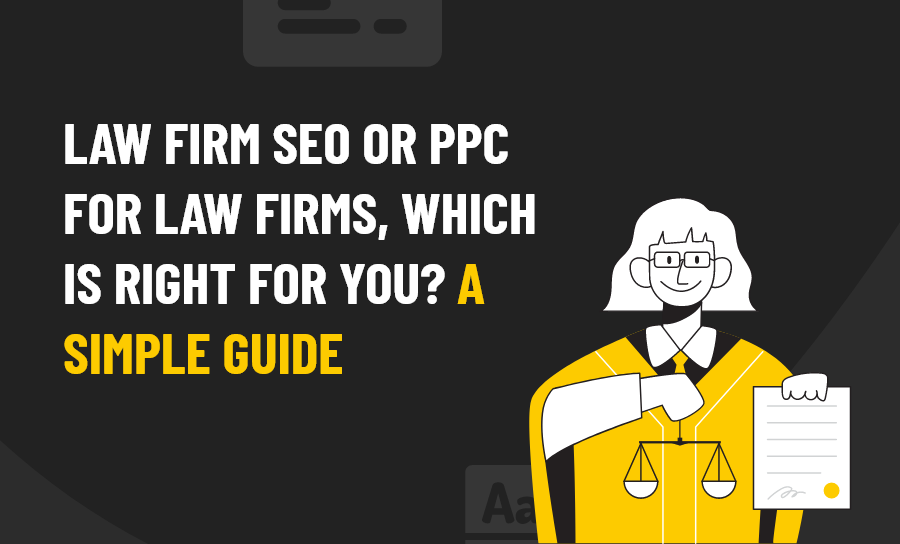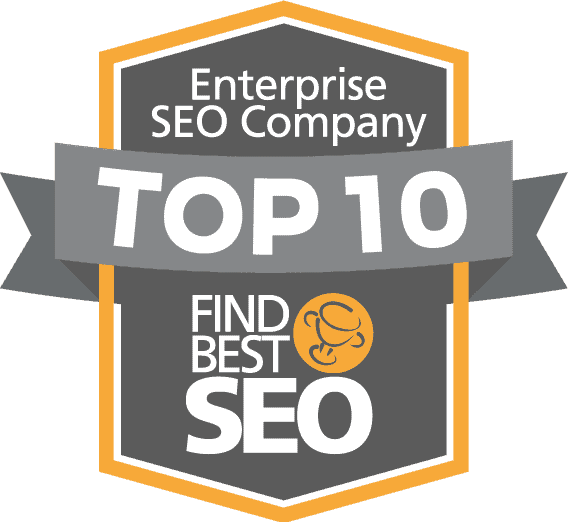Many lawyers ask, when trying to build a successful digital marketing strategy: how do I allocate a budget between pay per click and organic SEO? For an effective digital marketing campaign, both PPC and SEO are necessary, but how each is used either individually or in tandem is constantly up for debate. Usually, the decision comes down to two things: is it easier to buy your way to the top of search results using PPC, or should the available cash go into an organic SEO strategy?
Another notable life choice relates to one of the better ways to interpret this dilemma: to rent or own? The choice of how or when to use SEO or PPC is comparable to the debate that many have about renting or buying a home.
Depending on the size of the law firm, as well as its age, the factors that fall into this decision can vary, but budget, their present results, and the eventual goals of their campaign are some of the key components that an organization can use to help determine what is right for them. – says Lewis Banks, senior manager at LegalDrop.com
Depending on how they are used within a digital strategy, SEO and PPC both have their own strengths and weaknesses. Here, when it comes to law firm PPC and law firm SEO and how to establish online authority, we delve into the comparison of renting versus owning in greater depth.
Lead Generation Rental – PPC
A marketing tool used to advertise on search engines such as Google pay per click is also known as PPC. To make use of it as a digital marketing strategy, you’ll have to bid to have your ads appear at the top of the search results page (SERP).
For example, if a personal injury lawyer in Newcastle is utilizing PPC in their digital strategy, they would pay to have their ad display when someone searches using keywords such as ‘Newcastle personal injury lawyer’ or ‘personal injury lawyer in Newcastle’.
This method is called pay per click since any user who clicks on your ad will cost you, you’ll need to pay for every click. If no one is clicking on it, then you’re not charged. With costly keywords, however, it is equally possible for you to hit your budget in hours or even just minutes after pushing the ad live.
This method revolves around purchasing visits to your site instead of organically earning them. The explanation of why this is known as lead generation renting is because it is a short-term solution to ranking well on a search engine. PPC has a higher per-lead cost than SEO, but can be a faster and easier way to boost site traffic. Just like renting a home is faster and easier than buying one.
PPC is not always as quick and easy to implement as it might seem either. While launching a PPC campaign can be reasonably simple, there needs to be real data behind the campaign.
It will take time to gather data on user activity in your area, track the campaign over time, and adjust your strategy accordingly to maximize your allocated budget. So, while it may seem like you can set up the campaign in a few minutes, designing a functional and worthwhile PPC campaign may take much longer. And cost a lot more than you bargained for.
PPC is commonly seen as a rented marketing resource because it is buying a spot in the SERPs that is rented, not owned. Through their PPC campaign, if an individual or firm stops bidding for that spot, they no longer rank there, and the search engine gives it to the next bidder. You will disappear from the top of the SERPs as fast as you got there, and there will not be any residual benefits to show for it.
Owning Lead Generation Via Organic SEO for Lawyers
The process of optimizing a website and its content to gain user traffic from organic search results is called search engine optimization, or SEO. SEO relies on long-term, carefully implemented and informed techniques instead of a fast buy solution to propel a website to the first page of the SERP.
While there are a number of search engines, Google is by far the largest, which tends to skew SEO activities in order to cater to particular Google requirements. The best SEO firms do understand how to cater to others as well. This can be especially important to a personal injury lawyer as Bing is utilized far more often for local, mobile-initiated searches than many realize.
SEO should be included in a digital strategy if your law firm is playing a longer game. For those who want consistent results, sustained traffic, and are willing to wait a little longer, SEO is perfect.
Effective legal SEO calls for a precise combination of website design, authoritative linking, and original content generation. To create, cultivate, and sustain SEO changes on a website and around a brand, in general, requires a considerable amount of effort, which can take considerably more time than pulling the trigger on a PPC campaign will.
The reason why SEO is seen as lead generation ownership is because the money you put into your SEO will give you a more permanent position in the SERPs as a higher-ranking site.
SEO is not dependent on ad placement, but it does depend on continuous work. It’s a slower build, but unless you put in place practices that breach their rules and regulations, Google or the other search engines will not remove your site from a certain ranking once it’s obtained. Like buying a home, It can be more expensive at the beginning as opposed to renting the spot at the top of the SERPs, but it is far more effective for site authority and brand reputation in the long run.
How to Determine What’s Best for Your Law Business
Before using SEO or PPC in a digital marketing plan, there are several considerations to weigh. A few of the things that should be considered when determining how to use SEO or PPC are the purpose of the plan, how long it needs to last, and the budget available.
Although PPC can quickly result in more site traffic, it’s not as long-lasting. SEO can take longer, but it can be used to position you and your law practice at the top of the desired SERPs more permanently.
If you are still wondering which route could be the best for you, here’s a little more information and guidance for you to consider:
When to Opt for Law Firm PPC
- When you need immediate results when the practice is brand new, for example.
- When the keyword category you want to rank for is highly targeted and especially competitive.
- If your intended campaign is very time-sensitive.
- If your website isn’t geared towards or designed for SEO and you don’t want to change that. By this, we mean you do not want to change its copy or implement other SEO strategies like content creation.
When to Use Law Firm SEO
- When you want consistent traffic to your website.
- When you want to establish an authoritative site that positions you and your firm as experts in your field of law, and in your community.
- If you want the value of your website to increase, and its lead generation capabilities to do the same.
- If you want to establish yourself and your website at the top of the SERPs organically and for the long term.
For some lawyers and law firms, it would be more worthwhile to rent the space at the top of the results page than to own the authority for that search query. In order to increase site authority and traffic, there are also many instances where a strategy could combine SEO and PPC tactics. That is often the path we recommend to our legal clients.
It is important that you understand which path of lead generation would work best for you, regardless of how you end up using either strategy. The eventual strategy that you choose depends on the needs, budget, and purpose of the campaign.
Therefore, weighing up the fundamentals of SEO and PPC and following the plan that’s best for your unique ISP will better help you generate stronger leads that become the profitable clients you want – and need – them to be.
To get you started, here are some tips and tricks we, as experts in the art of SEO for law firms, as well as in PPC for law firms, and adept at blending both, offer to our legal clients.
PPC Tips for Lawyers and Law Firms
Get Your Keyword Targeting Right
It’s important for your PPC campaign to target the right keywords. To find important keywords for your business that are within your budget, use a tool like Google Keyword Planner. For every keyword, Keyword Planner provides suggested starting bids, empowering you to find the best keywords for your campaign.
For lawyers and law firms, this is particularly important because every law firm is bidding on the same keywords, leading Google to increase the prices of those keywords. “Attorney” is currently Google Ads’ 4 most expensive keyword, and “lawyer” and “attorney” are the 1 and 2 most expensive spots on Bing Ads, respectively. Your ads won’t show if you’re not bidding enough, so it’s best not to target keywords that are outside your budget.
In such a competitive market, when you’re running PPC ads, it’s smart to target 3-5 important keywords instead of just your top one. And note that targeting unique long-tail keywords such as “personal injury lawyer free consultation” would result in more leads than keywords such as “lawyer” with one word.
Setting the negative keywords in addition to the keywords you want to hit is a smart idea. These are meaningless keywords that you don’t want to have to pay for irrelevant clicks on.
Since there are several types of lawyers, most law firms may benefit from the use of negative keywords to attract the right client type. A negative keyword generator such as kparser and Negative Keyword Pro can be used, or you can simply add negative keywords that are the opposite of the keywords you aim to target.
For instance, because most personal injury lawyers do not deal with criminal law (and vice versa), a personal injury lawyer or personal injury law firm may want to add keywords related to criminal law to their negative keyword list.
Make Use of Responsive Search Ads
A relatively recent, very useful addition to Google Advertising is the option to make use of Responsive Search Advertising. To build an ad that changes to display more text and a more important message to your unique prospects from different demographics, Responsive ads allow you to enter several headlines and descriptions.
To find the one your prospects are most open to, Google automatically tests variations of headlines and descriptions. In essence, it’s A/B testing, which is crucial to your PPC campaign’s success, but Google does it for you.
Get Your Geotargeting Right From the Start
As an attorney, your business is location-specific, so ensuring that geotargeting is set up correctly is crucial. Since clients are not likely to travel many hours to your office, you should not target huge areas, like a whole country. Since the cost-per-click (CPC) is so high on keywords relevant to the law, you don’t want to waste your ad spending on people that aren’t going to make the trek to consult with you.
Using postal codes or zip codes, settle on a radius that makes sense for you and your potential clients and target that area. If you have several locations, split them into their own campaigns so that, instead of making one ad for all your locations, you can target each office’s potential clients more accurately. By adding locations you do not represent to your negative keywords list, you will elevate your geotargeting even more.
Make Sure Your Ads Are Relevant
As good as they are, these PPC optimization tactics will not work if your ads are poor, badly worded or just don’t speak to searchers’ pain points. Connecting with people’s pain points is a key tenet of advertising in general and had been for many years: you need to tell people how you will solve their problems and tell them quickly.
Your messages and imagery should be consistent through your ads, landing pages, and website, in addition to addressing pain points. For example, your landing page and website should also mention it if your ad talks about a free consultation. It’s a major element of trust to be consistent with your marketing and lets you remain at the forefront of the minds of your prospects as your ads will be instantly identifiable.
SEO Tips for Lawyers and Law Firms
Even if you decide to run a PPC campaign for your law firm, you will gain a lot more – get a bigger back for your buck as it were – if you also invest in an SEO push alongside those efforts.
Organic is SEO has its similarities with PPC, in that you will still need to be very mindful of making use of the right keywords, but the actual implementation of a law firm SEO campaign is very different. Here are some tips for getting things right from the start.
Code Optimizations are Key
One of the things that even some long-established SEOs and SEO agencies fail to pay enough attention to in general is onsite technical SEO. And to be honest, Google wishes they would, as a properly marked up website makes life a lot easier for their search bots and helps them ensure that their SERPs are as helpful as possible to searchers.
Your law firm’s website must be marked up with with the right headers, alt text, URLs, photos, title tags and meta attributions, indicating to Google how to index your text. Google uses the attribution designations of your site to file the site in the right place, just like a librarian sorting a complete stack by call numbers, so users can locate it quickly. Hint: If your “book” is not properly sorted in the stacks, even if the card catalogue insists that it is present, users will never find it.
We will be the first to admit that some of these coding optimizations are not easy and they are certainly not very glamourous (versus say publishing a stellar blog post or great infographic) But they are as much of a must-do as any other aspect of SEO for lawyers.
Make Your Website’s Navigation User Friendly
Have you ever visited a website where finding your way around was impossible? Of course, you have, we all have. And it is very frustrating, to say the least.
The last thing you want is when a user lands on your site is for them not be able to locate the information they need especially if they were driven to your site by a PPC click you just paid for.
Every lawyer knows that a firm handshake and trustworthy eye contact is crucial in the first meeting with a prospective client. Your website has to provide that in the virtual world by being well laid out, easy to navigate and reassuringly clear and straightforward.
If it is not, searchers will simply click away. Not only will that lose you a lead, but it will also damage your SEO. The amount of time prospective clients spend on your website, on each page, and how many times a user clicks on your website really matters. If they automatically press the “back” button, out of confusion, that’s what Google terms a bounce, and a high bounce rate is terrible for SEO.
You Need Great Content
Users can be drawn into your website through frequently updated, appropriate, insightful material. In 2020, bad copy stuffed with keywords will not fool any search engine, especially Google. Useful, authentic content on your website and blog is the only form of content worth producing. That content will happen to include important keywords, but those are secondary considerations.
Content, for a lawyer, can do a lot more too. Good content can set you up as an expert in your field, a ‘voice’ worth trusting and listening to. Great content is one of the ways that smaller law firms end up outranking the ‘big boys’ in many search queries. People are looking for information and someone they can trust when looking for a lawyer, and great content goes a long way towards ‘proving’ you/your law firm are the ones they need.
You Need (Good) Backlinks and Good Internal Links
Many people – even those who have never paid much attention to SEO before – have heard that a website needs backlinks to help it rank in search. And that’s broadly true. A site linking to your website is, to Google bots, a sign that it is useful to an outside entity, which is exactly the kind of ‘sign’ it’s looking for.
However, although backlinks have always been a large part of the Google algorithm, in 2020, the quality of the backlinks is as important as the quantity. In a nutshell, you need plenty of backlinks, but they must be from relevant, reputable sources. Obtaining those can be a real challenge, which is why many law firms turn to a legal SEO agency for help.
Internal links are important too, though. Google bots like to move fast. So, if there is a good internal linking system to help them make their way through your content, they will get a far better understanding of it and will place it more appropriately in the SERPs.
Final Word
Legal SEO, including SEO for personal injury lawyers, can be very effective. The same is true of a great law firm PPC campaign. Making use of both can be even more effective. However, the tips covered here are just the tip of the iceberg. SEO and PPC are not stagnant concepts; they change all the time, especially SEO.
Partnering with a successful SEO agency like Pearl Lemon can make all the difference. Contact us today to discuss what we can do for you.








